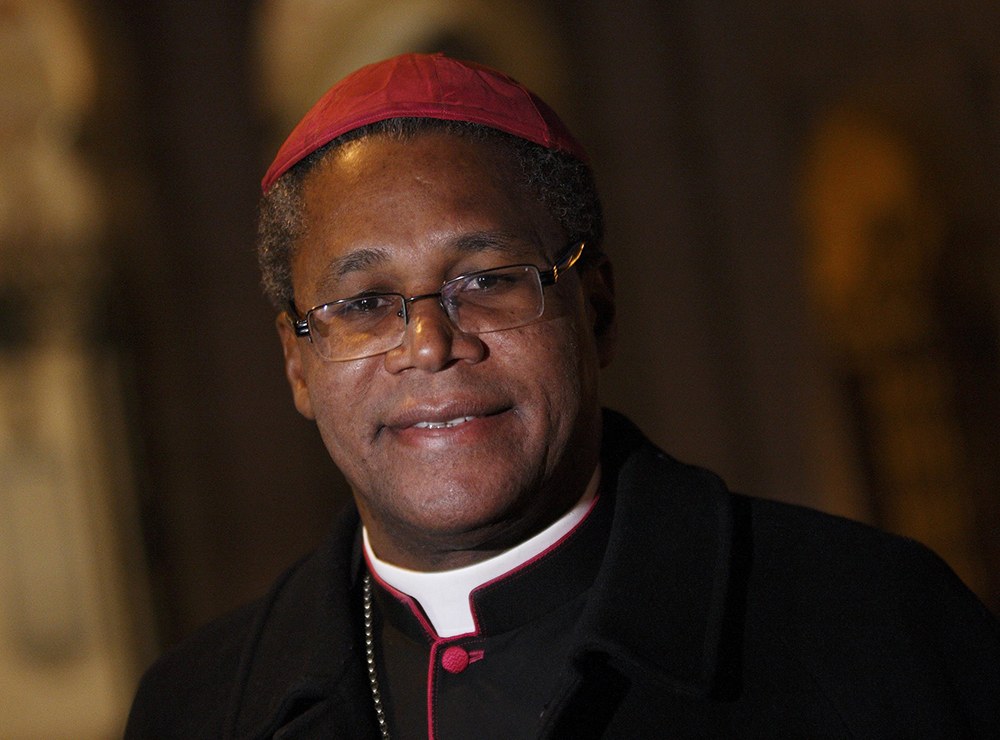
PROSPECT HEIGHTS — After sustaining severe burns in a Feb. 18 explosion, Haitian Bishop Pierre-André Dumas of Anse-á-Veau and Miragoâne has arrived at Jackson Memorial Hospital in Miami, where he will receive additional treatment and recover from his injuries.
Bishop Dumas suffered burns to his face, arms, and legs in the explosion, and was in stable condition following surgery. He arrived in Miami to continue his recovery in the early morning hours of Friday, Feb. 23, and has since had another procedure that went well, the archdiocese told The Tablet on Feb. 28.
Despite Haiti’s insecurity and concerns that the explosion was a targeted attack, Archbishop Thomas Wenski of Miami expects Bishop Dumas will return to Haiti when his health permits.
“I’m sure he’ll go back as soon as his health permits him to go back, and really, he needs to go back,” Archbishop Wenski told The Tablet last week. “The church needs him.”
Bishop Dumas was visiting Port-au-Prince, Haiti’s capital, at the time of the explosion. Its cause remains unknown. Archbishop Wenski said he spoke to a few priests in Haiti who believe it may have been a targeted attack. However, local police have suggested it was a gas explosion.
“I’ve talked to a few priests in Haiti and it’s highly suspicious,” Archbishop Wenski said. “There’s a lot of things to be sorted out, and I guess there will be time to do that, hopefully, but right now the priority is getting the bishop the best medical help that he needs.”
Bishop Dumas is the vice president of the Conference of Catholic Bishops of Haiti (CEH). Archbishop Wenski, who said he hopes to visit Bishop Dumas Feb. 29, described him as a “good preacher” who has worked hard to encourage the various parties to work together and to resolve the years-long political impasse.
Already in a precarious situation, Haiti has been in a sort of free fall since the assassination of President Jovenel Moise in 2021. To this day there is great political instability, as the nation’s parliament was dissolved. And much of the nation is controlled by criminal gangs.
Church personnel are often the targets of attacks and/or kidnappings for ransom.
Just last week, six religious men belonging to the Congregation of the Brothers of the Sacred Heart and a priest were kidnapped in Port-au-Prince, and remain in captivity. In January, six Catholic nuns and one other hostage were kidnapped and released a few days later.
In 2022, Italian nun Sister Luisa Dell’Orto was murdered during an armed attack in Port-au-Prince. In 2021, five priests and two nuns were held hostage by gangs for three weeks before being released.
“As somebody said to me after I informed him [of Bishop Dumas’] situation, he said, ‘Could hell be worse?’” Archbishop Wenski said of Haiti. “Everybody is frustrated with the lack of progress in trying to find a solution that will allow Haiti and Haitians to return to some level of normalcy.”
“As I remind people here in Miami, we’re surrounded by islands of pain — Haiti, Cuba, Venezuela, Nicaragua — and that all of us in Miami have connections with one or more of those countries so I think it’s important that we have a sense of solidarity with our brothers and sisters,” Archbishop Wenski added.
Archbishop Wenski noted also that the church remains Haiti’s best hope because of its presence throughout the island.
“You can’t be in a part of Haiti and not be in somebody’s parish, and so that shows the breadth and the depth of the church in Haiti, and the churches are doing a lot of the health care that is happening in Haiti, most of the education, and so when the government agencies are not functional or are very weak the church is stepping up,” Archbishop Wenski said.
